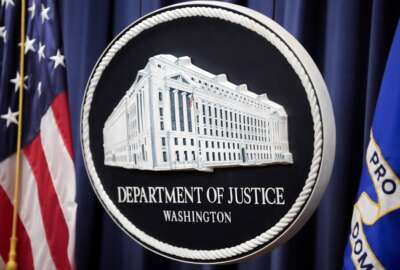Battle looms over DoD Tricare fee hike
Defense Secretary Robert M. Gates is seriously considering whether to ask for Tricare fee increases in next year\'s budget. We get details from Todd Harrison at...
wfedstaff | June 3, 2015 5:55 pm
By Suzanne Kubota
Senior Internet Editor
FederalNewsRadio.com
Health care at the Pentagon costs more than $50 Billion a year. More than two-million military retirees and their families are currently on the Pentagon’s lifetime health insurance plan, but, Defense Secretary Robert Gates is reportedly trying to increase TriCare fees to help reduce some of the department’s costs.
Approximately 9% of the Defense budget goes to healthcare, and “a large portion of that is for the Tricare program and there are about twice as many military retirees and dependents in the Tricare system as there are active duty military personnel,” according to Todd Harrison, senior fellow for Defense Budget Studies at the Center for Strategic and Budgetary Assessments.
Harrison told Federal News Radio it’s also one of the fastest growing areas of the DoD budget, growing 5 to 7% a year.
According to his research, said Harrison, when the Bush administration proposed increasing premiums in 2007, they projected saving $6 billion a year. “So it is significant money that we’re talking about,” said Harrison.
While he said the chances are not good the premiums would be raised this time, they’re better than they were before because of growing pressure on the budget.
If you’re going to cut Defense spending, this is actually one of the better ways to do it because you don’t lose force structure, you don’t lose capabilities, you don’t lose weapons systems or anything like that. So I think for those reasons, it’s going to get some renewed attention this time around, but I still don’t think the odds of it passing Congress are that high.
As for concerns about the plan’s impact on recruitment and retention, Harrison said the effects would be negligible.
If you look at factors that the factors that influence recruiting in particular, military retirement benefits aren’t one of them and the simple reason is that for 85% of enlisted troops, they’re not going to stick around the 20 years for retirement anyway so they’re not going to get this benefit. So they don’t attach any value to it, particularly when they’re 18 years old and enlisting.
And while healthcare may be a factor in retention, said Harrison, “all we’re talking about here is not cutting the benefit. The proposal that’s out there is just to increase the annual premium of it and so I don’t know that that will really have that big of effect on retention either.”
Harrison points out the hike would only hit retirees because before retirement, members of the military are part of the Defense health system. “The biggest source of savings is not from the increase in premiums that people would pay: it’s the fact that you would incentivize more military retirees to opt out of the military health system altogether.”
Most retirees have served for 20 years, said Harrison, after coming into the military in their late teens and early 20s, meaning many retire in their 30s and 40s. They go on to other jobs where they could opt to use their new employer’s health care. Then, once they turn 65, they qualify for Medicare and Tricare for Life.
While increasing Tricare premiums was included in the draft report, the final version of the recommendations from the National Commission on Fiscal Responsibility and Reform doesn’t specifically mention it. According to the Army Times, “the new report recommends a review of federal health care spending, including the military’s Tricare, with the potential for raising Tricare premiums in the future.”
Copyright © 2024 Federal News Network. All rights reserved. This website is not intended for users located within the European Economic Area.





